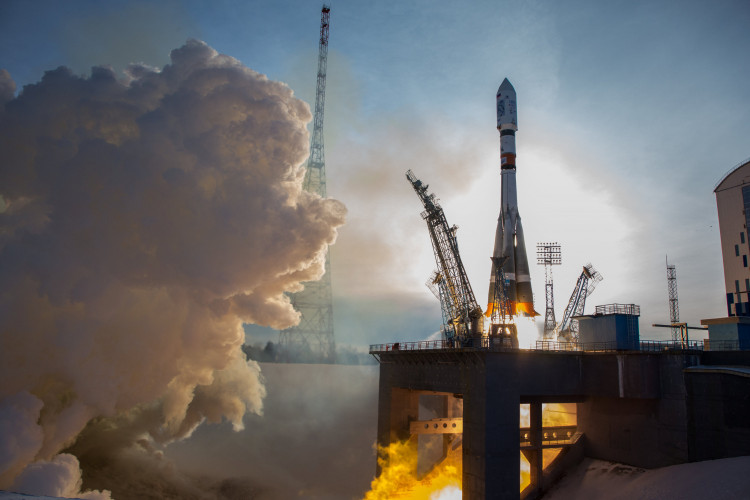U.S. President Joe Biden mentioned in a Thursday statement that Russia's space program will degrade as a result of new sanctions.
Russia invaded Ukraine this week, initiating military operations in numerous cities that have killed at least 40 people, according to the Associated Press. World leaders have reacted to the crisis, and Biden announced today that the U.S. will impose new sanctions in retaliation.
"We estimate that we'll cut off more than half of Russia's high-tech imports. That will strike a blow to their ability to continue to modernize their military," Biden said. "It'll degrade their aerospace industry, including their space program."
According to Biden, the latest sanctions are part of an international response to Russia's actions in Ukraine.
Dmitry Rogozin, the director of Russia's space agency Roscosmos, turned to Twitter on Thursday to make a series of statements, ostensibly in response to Biden's remarks.
"Do you want to destroy our cooperation on the ISS?" Rogozin tweeted in Russian (translated with Twitter translate).
"If you block cooperation with us, who will save the ISS from uncontrolled deorbiting and falling into the United States or Europe?" There is also the option of dropping a 500-ton structure to India and China. Do you want to threaten them with such a prospect? The ISS does not fly over Russia, so all the risks are yours. Are you ready for them?" Rogozin added.
NASA and Russia's space agency Roscosmos both stated earlier this week that collaboration in space will continue as usual. However, Russia has launched these assaults in Ukraine as recently as yesterday.
Boris Johnson, the British Prime Minister, also spoke today on how projects between the U.K. and Russia may suffer as a result.
Russia's space program, which Biden warned will be impacted by the new sanctions, is developing a number of new missions and technologies.
The country is developing the Orel crew capsule, which will be launched on Russia's new Angara rocket, which is now under testing and will launch from a new pad at the Vostochny Cosmodrome in Russia. This capsule is being designed to be capable of docking with Gateway, NASA's proposed outpost in lunar orbit, according to Russia.
The exact impact of the new restrictions on this and other planned Russian space initiatives is unknown. Future launches that signify collaborations between Russia and countries opposing its activities in Ukraine are also in peril.
For example, on Apr. 6, the European Space Agency (which does not include Ukraine) will launch two Galileo satellites from French Guiana, which is managed by France, a NATO member and EU member.
Furthermore, OneWeb, a private satellite firm headquartered in London with operations in the United States, planned to launch a new crop of satellites onboard a Soyuz rocket from Kazakhstan's Baikonur Cosmodrome on Mar. 4.
Only time will tell where Biden's sanctions will take the decades-long space collaboration between the U.S. and Russia.






